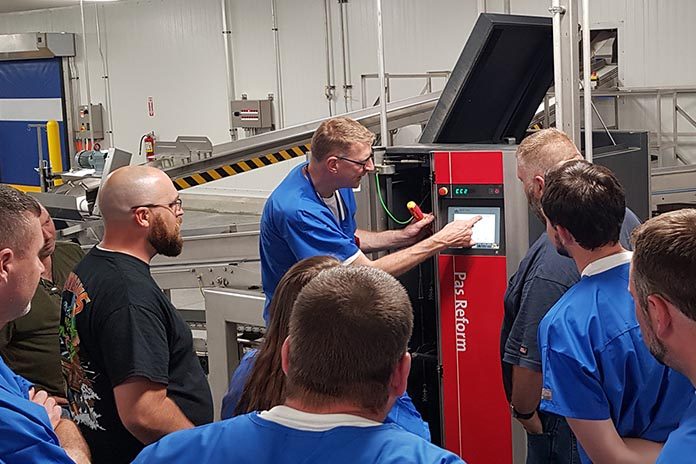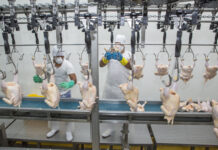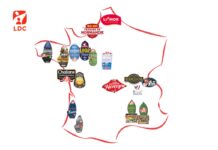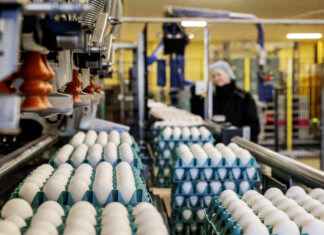
To ensure the continuous, optimized running of modern, technologically advanced hatcheries, operational staff today need to be skilled across multiple disciplines. This includes having an understanding of the overall hatchery systems, equipment and incubation processes, as well as being able to operate and maintain specific components safely and efficiently.
To help meet this requirement, Pas Reform recently organized a practical, interactive and hands-on, three-day hatchery technical training program for a group of key US customers. Participants learned both from the trainers and through the opportunity to share experiences and insights with other professional hatchery personnel.
The residential course was held at the Koch Foods hatchery in South Guntersville, Alabama in early May. It was attended by a group of 14 learners from Cobb Blairsville, Cobb Cleveland, Koch Foods Crossville, Koch Foods Henagar and Wayne Farms. The specialist teaching team included incubation specialists and service managers from NatureForm and Pas Reform.
The course was targeted at technical staff and maintenance managers. It was designed to equip them with the skills to correctly operate the equipment – including preventive maintenance, how to respond to minor alarms and carrying out small repairs – within the overall context of the incubation processes.
Practical subjects covered included the operation of setters and hatchers, chillers and air handling units, automation systems, and service and spare parts. There were also demonstrations and practical assignments involving SmartCenterPro™, SmartCare™ and the SmartService™ app.
Iwan ter Wiel, Service Manager at Pas Reform, and part of the program delivery team explained: “The interactive training was based on practical sessions and discussions and gave participants the opportunity to ask questions and exchange ideas with trainers and other participants. We encouraged them to constantly be asking themselves: Where can I improve in my hatchery?”

















